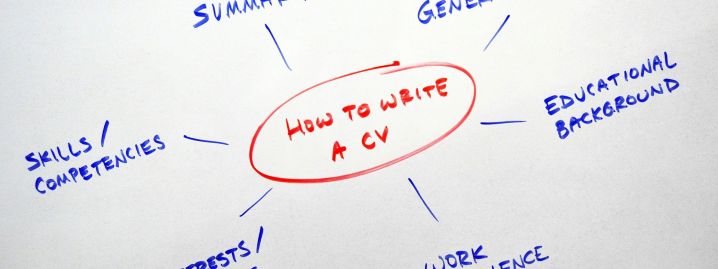Info Centre
Tips for Writing a Great CV

Tips for writing a great CV
We know that putting together a well-rounded CV can be challenging, so we have put together a guide to give you some basic tips on how to write your own CV or make your existing one even better.
What types of CVs are there?
There are two main types of CV:
- A skill-based CV – focused on transferable skills and personality.
- A work-based CV – focuses more on your work history.
How should your CV be set out?
- Should be in reverse chronological order, with the most recent job first.
- Clearly laid out
- Black, simple font
- All one size lettering
- Bullet point any lists
- Formal writing - no slang or abbreviations
- Use headings with bold or underlining.
What sections should you include in your CV?
- Contact Information
- Personal Statement
- Work History
- Education
- Skills
- Achievements and Awards
- Interests
- References
Contact Information
- First and Last names
- Address
- Email Address
- Phone Number
- LinkedIn Profile (optional)
Personal Statement
- This should be a brief overview of your personality and the work you have done.
- Should only be around 5 sentences long.
- Sets out your current employment or educational situation.
- Say why you are applying for the job.
- Address what your career aspirations are.
Work History
- Here you should list all of the jobs you have had.
- The job role
- The date you started and ended.
- Where the role was based
- List any achievements whilst in the role.
- Think about the skills you gained from the different jobs and how they could be used for this new role.
Education
- You want to detail your education and the grades/qualifications you have achieved
- School Name
- Start and End date
- A list of grades and qualifications
Volunteering
- Include Role
- Start and End date
Skills
- You want to ensure the skills listed in your CV are the same advertised on the job application.
- In each instance pick out a skill and attach a real-life example of you having this skill in the workplace.
- Remember there are different types of skills: technical skills, personal skills, communication skills etc…
- Use action verbs to describe your skills.
Achievements and Awards
- Simply bullet point a list of awards and achievements you have gained.
Interests
- This section is optional!
- Include interests which evidence the skills your employers will looks for.
- Avoid interests which show lack of skills – watching Netflix or having a coffee with friends.
References
- You will need two referees.
- Referees need to talk about the skills you have and make you sound employable.
- Referees should put their contact details, position and a way to contact them through email or phone number.
What Should You Not Include in your CV?
- Photos
- Colourful or interesting fonts
- Bad spelling and grammatical errors
- Rude or silly email address
- Any experiences or skills not relevant to the job
- Lying about the experiences and skills you have.
Our guidance is not extensive and other places may detail something slightly differently, but we have tried to arm you with the basic information you will need to note down and a simple format and structure to guide your CV.
We hope this was helpful!
Stay Safe,
Team Affecto.